
Poor social conditions badly affect the relationship between a married couple, when the husband, who is desperately searching for work, fails to notice the terrible sacrifices made by his wife when she accepts a job at a local inn.
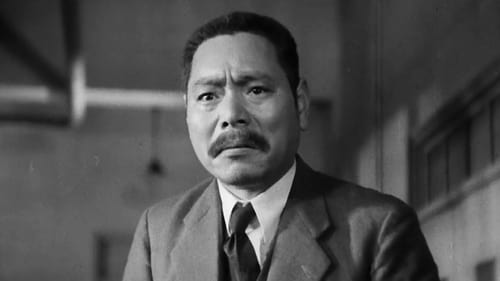
金沢の中学教師である堀川周平は、妻を失い、小学生の良平と二人で暮らしていた。しかし修学旅行先で教え子を溺死させてしまい、責任を感じた周平は学校を退職。出身地の信州に帰るが、中学生になった良平を寄宿舎に預け、一人で東京の工場に勤めることにする。帝大を卒業し教師となった良平は、久々に父親と温泉宿で再会し、教師を辞めて一緒に暮らしたいと告げた。しかし周平は「今の仕事を投げ出してはいけない」と息子を諭すのだった。
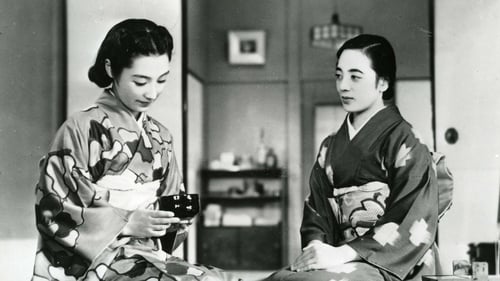
After the death of her husband, Mrs Toda and her youngest daughter receive a frosty welcome from the extended family.

On vacation's eve, a boy is sent to the countryside to live with his uncle after his father is imprisoned and accused of embezzlement.

Fire guard
A Japanese screwball comedy about the battle between the sexes: two timid men, egged on by their wives, end up in a bitter duel over an expensive lace handkerchief.

Soichiro, Sohachi's son
Kinuyo is a daughter of doctor of Chinese medicine, and Yasuo is a son of surgeon. Their families always fight like cat and dog. This relationship is ancestral. Although Kinuyo and Yasuo love each other, they have different thoughts toward treatments.

Tomitaro, Yoko's uncle
Three men fall in love with the same young girl who works in a tonkatsu restaurant in the Shitamachi district of Tokyo.

The eldest daughter of a noble family is in love with an aviator while being courted by a fellow aristocrat she thinks is a dullard. This part is told from the perspective of Akemi.

昭和の名匠・清水宏監督が、川端康成の短編小説「有難う」を上原謙主演で映画化したロードムービー。伊豆地方の美しい自然を背景に、バス運転手と乗客たちが織り成す人間模様をユーモラスに描く。道を譲ってくれた人々に「ありがとう」と声を掛けることから、「ありがとうさん」と呼ばれて親しまれているバス運転手。そんな彼のバスに、貧しさから東京に売られていく娘とその母親、訳ありの女、威張り散らすヒゲの紳士らが乗り込んでくる。(eiga.com)
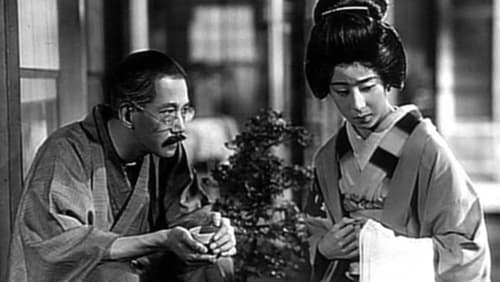
Family drama. A middle-aged father has just married off his third daughter, but still has his nine year old son to raise whom he resents as he was unwanted. (British Film Institute)

If you throw this child away
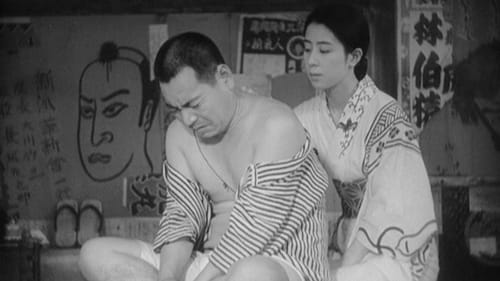
Tomibo's father
小津安二郎が原作(ジェームス・槇のペンネーム)と監督を担当したサイレント作品。小津安二郎が原作(ジェームス・槇のペンネーム)と監督を担当したサイレント作品。
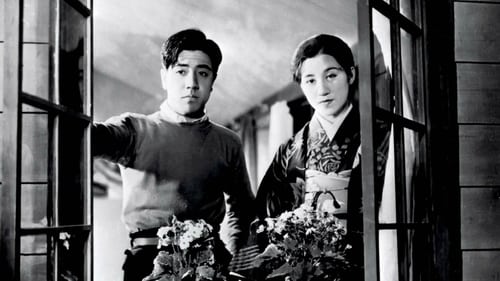
Butler
Mikio Naruse’s final silent film is a gloriously rich portrait of a waitress, Sugiko, whose life, despite a host of male admirers and even some intrigued movie talent scouts, ends up taking a suffocatingly domestic turn after a wealthy businessman accidentally hits her with his car.

Heinosuke Gosho evokes in this film the family conflicts engendered by the eternal problem of a father who projects his professional desires on the life of his son. The sister Machiko is the essential link that will allow everyone to apologize to each other and achieve reconciliation

Barber
坂本武演じる喜八を主人公とした「喜八シリーズ」の第一弾。長屋で息子の富夫と二人で暮らす喜八は、日雇い労働者として工場に勤めている。同僚で隣に住む次郎と一緒に演芸場へ出かけた喜八親子は、その帰り道で春江という女性と出会う。彼女は工場をクビになり、行く当てがないという。喜八は、行きつけの食堂の店主である“かあやん”に、春江を泊めてほしいと頼み込んだ。春江は食堂に住み込みで働かせてもらうことになった。富夫は年甲斐もなく春江に熱を上げるが、彼女は次郎に興味を持っていた。
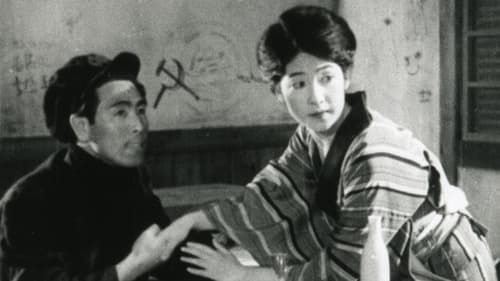
In the formally ravishing Every-Night Dreams, set in the dockside neighborhoods of Tokyo, a single mother works tirelessly as a Ginza bar hostess to ensure a better life for her young son—until her long-lost husband returns.

Secretary
A gangster tries to find redemption with the inadvertent help of an innocent shop girl and his jealous girlfriend will do anything to keep him.

Man
"The Dancing Girl of Izu" tells of the story between a young male student who is touring the Izu Peninsula and a family of traveling dancers he meets there, including their youngest girl. The student finds the naïve girl attractive even though he eventually has to part with the family after spending memorable time together.

Hiyama
This pair of gentle yet witty and inventive comedies from the director of The Neighbour's Wife and Mine typify both the formal experimentation of early Japanese sound cinema and the social milieux that Shochiku tended to depict. 'Virtually plotless, and feeling more like comic sketches than fully developed stories,' writes Arthur Nolletti, Jr, 'these light comedies, or farces, take a wholly trivial matter (often a socially embarrassing situation) and use it as a springboard for a succession of gags.' Much of the films' distinction comes from the wit of Gosho's direction, the imaginative use of the new sound technology and the charm of the acting, particularly of the heroines (Kinuyo Tanaka in Bride; Hiroko Kawasaki in Groom). Yet in both films, Gosho finds room for some shrewd observation of character and environment, subtly exploring the values and assumptions of the suburban petit bourgeoisie.

Company president
A student comes up with various schemes to avoid paying a tailor the money he owes him. Considered to be a lost film.

Kato's splendid mustache is an obstacle when it comes to finding a job. However, he gets a job as a security guard at a construction site. The president of the construction company tries to grow a mustache like Kato's and, failing, orders Kato to shave off his.
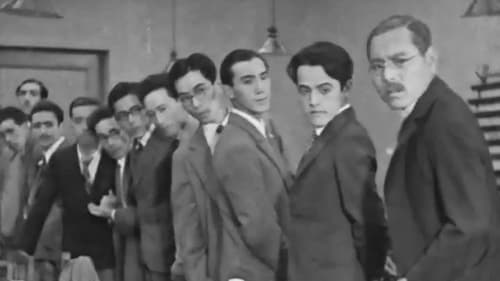
Shachou
Mr. Omura, a teacher, leads a group of male students in an outdoor drill. One slight, comic young man, Shinji Okajima, has no shirt under his jacket; he scratches at fleas and makes faces behind Omura's back. Jump ahead several years, Shinji is married with three children. He sells insurance, and on the company's annual bonus day, he protests when an older worker is fired. Shinji loses his own job as a result, and he and his wife must find ways to cope. Lassitude, pride, the demands and needs of young children, and relationships from bygone school days all play a part in the outcome of their struggle.



















